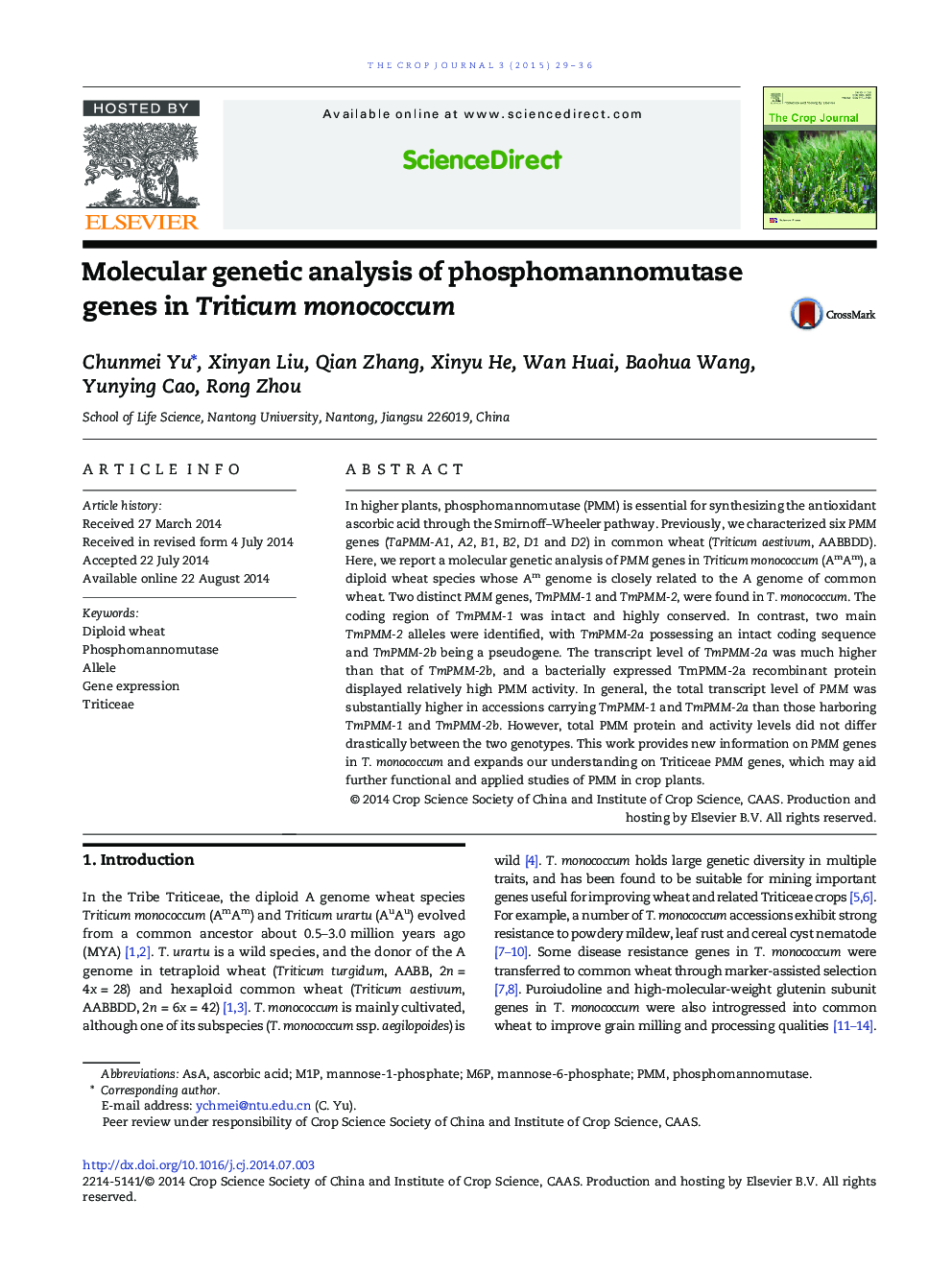| Article ID | Journal | Published Year | Pages | File Type |
|---|---|---|---|---|
| 2079497 | The Crop Journal | 2015 | 8 Pages |
In higher plants, phosphomannomutase (PMM) is essential for synthesizing the antioxidant ascorbic acid through the Smirnoff–Wheeler pathway. Previously, we characterized six PMM genes (TaPMM-A1, A2, B1, B2, D1 and D2) in common wheat (Triticum aestivum, AABBDD). Here, we report a molecular genetic analysis of PMM genes in Triticum monococcum (AmAm), a diploid wheat species whose Am genome is closely related to the A genome of common wheat. Two distinct PMM genes, TmPMM-1 and TmPMM-2, were found in T. monococcum. The coding region of TmPMM-1 was intact and highly conserved. In contrast, two main TmPMM-2 alleles were identified, with TmPMM-2a possessing an intact coding sequence and TmPMM-2b being a pseudogene. The transcript level of TmPMM-2a was much higher than that of TmPMM-2b, and a bacterially expressed TmPMM-2a recombinant protein displayed relatively high PMM activity. In general, the total transcript level of PMM was substantially higher in accessions carrying TmPMM-1 and TmPMM-2a than those harboring TmPMM-1 and TmPMM-2b. However, total PMM protein and activity levels did not differ drastically between the two genotypes. This work provides new information on PMM genes in T. monococcum and expands our understanding on Triticeae PMM genes, which may aid further functional and applied studies of PMM in crop plants.
